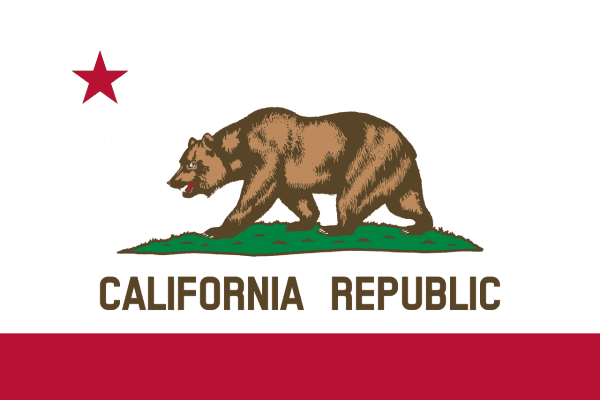Five Market Trends Aswirl in California and the Cannabis Sphere at Large

Hedging One’s Bets Makes Sense and Can Save a Fortune in the Cannabis Tax Arena
August 24, 2017
Online Buying Habits
August 27, 2017By J.J. McCoy, Senior Managing Editor for New Frontier Data
New Frontier Data constantly examines various dimensions of the industry to identify, quantify and holistically discern its constituent dynamics. In anticipation of California’s opening its adult use market in little more than four months, these are five characteristics which can be expected not only to shape and strengthen the state’s enterprise, but the cannabis industry at large.
Silicon Valley capital is looking to get into the game as California prepares to open its adult use market in January 2018. As Geoff Lewis (a Founders Fund partner with Paypal founder Peter Thiel) has explained, investing in cannabis – now legal in at least some form of in 30 states – “is just a slightly more extreme version of something we’ve shown in our other investments that we’re comfortable with. We’re fine with investing in businesses with regulatory ambiguity, because we believe that regulation follows public sentiment.”
Palo Alto-based Plus Gum, founded by Facebook alum Jake Hiemark, with its offering of cannabis-infused chewing gum, is but another example of the tech industry wunderkind looking to catch on in the burgeoning cannabis market.
Canna-tourism, as detailed in New Frontier Data’s Cannabis Industry Annual Report: 2017 Legal Marijuana Outlook reporting the 2017 Cannabis Attitudes Survey, is angling for activity. Approximately 1/5 of respondents (22%) indicated that cannabis legalization would make them more interested in visiting a state, though a majority (66%) said legalization would not influence their travel interest. Nevertheless, among those who said they would be positively influenced in their choice of locales by the availability of legal cannabis, 84% said they were likely to purchase cannabis once there. Top choices included Colorado (61%) and California (59%), followed by Washington (37%), Oregon (36%) and Nevada (36%).
Anticipating 2018, California destinations ranging from Lake Tahoe for skiing and hiking, the urban hubs of Los Angeles and San Francisco for arts and culture, and even a cannabis-specific setting like the pilot project of the recently bought hamlet of Nipton are all looking to inspire some wanderlust among dedicated tourists.
The cannabis economy at scale will open the veil to all kinds of market possibilities. As California ramps up as both the largest regulated medical and adult use cannabis markets in the U.S., and with a state economy that would rank it as the world’s sixth-largest GDP, legal cannabis sales there are projected to reach $2.8 billion for 2017, with a compound annual rate (CAGR) of 12% over the following eight years to reach an estimated $6.6 billion by 2025.
Figuring where California’s example and output will lead the world would make any $64,000 question seem like a rounding error. While Canada primes itself for an aggressively pro-active stance, countries in Latin America and Europe will also find themselves a true national comparator and case study for virtually every aspect of legalization. Such lessons learned from cultivation to product manufacturing and process optimization will extend to market efficiencies, lowered costs, and ultimately better-quality products and services overall.
Appellations will rise out of California as well, as it becomes the first state to see fully leveraged regional branding as a differentiator. Like it has seen with its wine industry’s record sales, it will establish discussions and rivalries between territories, regions and landrace strains for popularity and profitability between geography and cultivars.
Likewise, countries The Netherlands or Jamaica, and legendary strains like Mexico’s Acapulco Gold, etc., will assumedly follow California’s lead and position themselves accordingly.
Sustainability and social conscience will likewise find themselves exploited for marketing and public relations campaigns. As cultivation facilities come online, regulators will be keeping a very close look at energy efficiency, land use, and other principles of sustainability. etc.
Indoor versus outdoor? The debate will be propagated about whether one technique is inherently superior to another. Development of organic brands (not just on behalf of environmentalism but also as an ethical appeal) will be performed on a new, unseen scale. That noted, the pursuit of state-based organic standards and best practices can serve as guidelines for a national standard upon repeal of U.S. federal prohibition.
For more information about the Golden State’s market specifically, find New Frontier Data’s California state report here, along with individually updated reports for each state market, available here.

J.J. McCoy
J.J. McCoy is Senior Managing Editor for New Frontier Data. A former staff writer for The Washington Post, he is a career journalist having covered emerging technologies among industries including aviation, satellites, transportation, law enforcement, the Smart Grid and professional sports. He has reported from the White House, the U.S. Senate, three continents and counting.




